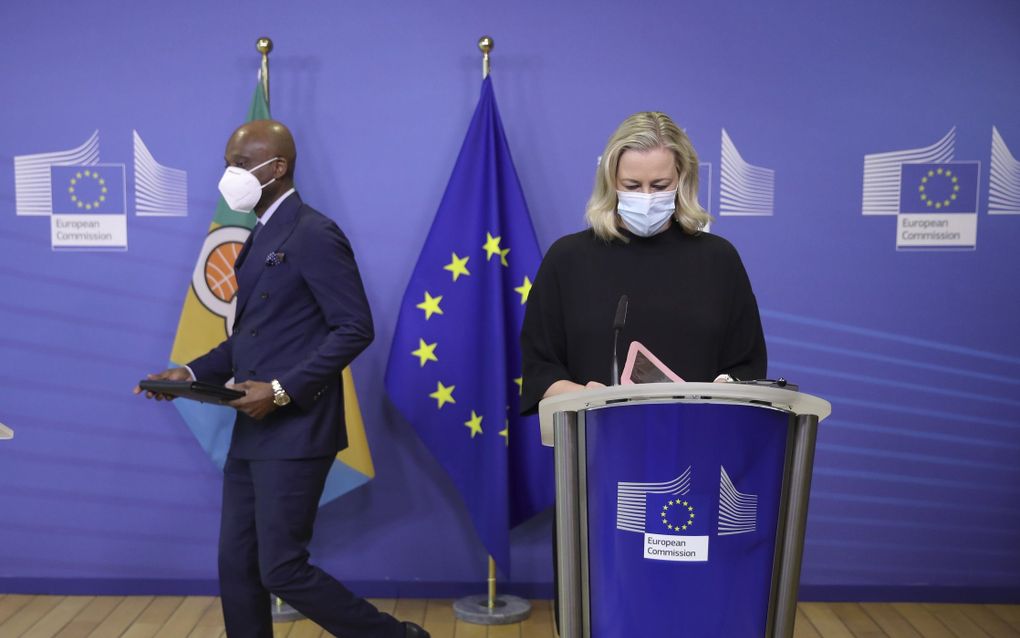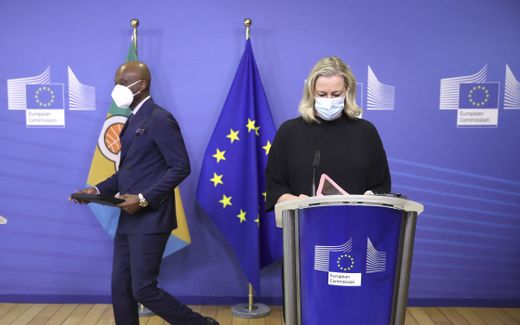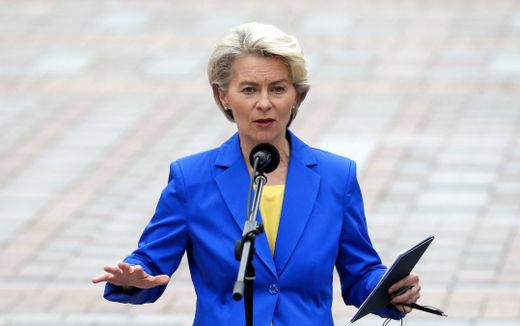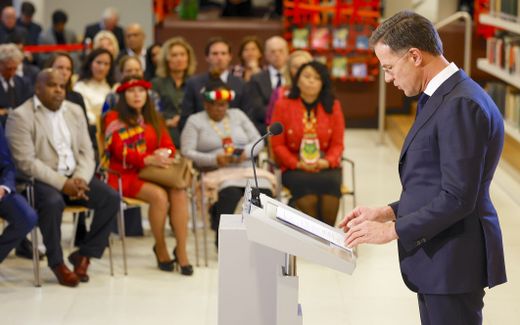Europe tries to undermine African sovereignty with LGBT laws

European Commissioner for International Partnerships Jutta Urpilainen (R) and Robert Dussey (L) Togolese Minister of Foreign Affairs, Regional Integration and Togolese Abroad, Chairman of the Central Negotiating Group and Chief Negotiator of the Organisation of African, Caribbean and Pacific States (OACPS) gives a press briefing ahead of the signature of the new OACPS-EU Partnership agreement in Brussels. Photo EPA, Olivier Hoslet
European Union
If African countries want to benefit from trade agreements with European countries, they will have to change their laws concerning abortion and LGBT rights. African leaders are outraged.
Last year, African and European countries negotiated a new trade agreement, the Post-Cotonou agreement, as it is called. But African countries are dissatisfied. “The European Union does not see us as equal partners in the negotiation”, Samuel Acuti, the Ugandese parliamentary representative says to the Dutch daily Nederlands Dagblad. He argues that the European Union wants to impose the agreement on Africa, without taking into account the African beliefs, traditions and culture. “We are supposed to accept clauses about homosexuality, gender and sexuality that are miles away from our own world.”
Not until recently, Acuti had never heard about transgenderism. He googled the term and was shocked because, in the Post-Cotonou agreement, there seem to be clauses about the concept. He informed the Ugandese President about the agreement, and it is likely that Uganda, where homosexuality is forbidden by law, will not sign the pact as it is now.
Transgenderism
During the negotiations, the Czech representative of the European Union, Tomáš Uličný, pointed out that the agreement only mentions the disproval of all forms of discrimination. However, that did not convince Acuti. “The terms are not literally mentioned in the text, but instead, you refer to agreements that do mention them. And the pact says that we have to agree to these pacts.”
One of the controversial agreements Acuti refers to is the so-called “International technical guidance on sexuality”. That is a document that specifies in detail how children should be educated about homosexuality, masturbation, sexuality, pregnancies and transgenderism. For example, children between five and eight years old must reflect with their parents or teachers on their own gender.
Thorny
However, the thorny issue is that African countries were not involved in setting up these guidelines, among other agreements. According to Acuti, the European Union attempts to break into the African bedrooms and tell the African population how to raise their kids according to a European model. “That is simply colonial behaviour.”
The Netherlands has been one of the countries pushing for the inclusion of controversial clauses in the trade agreement. Member of the European Parliament Samira Rafaela says to understand that African countries see the agreement as colonial behaviour. The Dutch progressive politician, however, sees human rights as something “not only for hetero males but also for females and LGBT people. From Europe, we must educate other countries on this.”
If African countries sign the pact, they must adhere to European views on abortion and homosexuality. If they do not change their laws accordingly, they will be subject to “proportional measures.” Thus, if these African nations want the benefits of the trade agreement, they must sacrifice their sovereignty.
Boundaries
It is not the first time the European Union has used a trade agreement to impose its values on other countries. At the same time, this is a controversial course of affairs. The countries the EU negotiates with are in a much worse position. “They have little in common and find it difficult to work together to define their common boundaries”, says Chibuike Uche, professor of governance of finance and integrity in Africa at the Dutch university of Leiden.
The Sierra Leonese MP Mathew Nyuma agrees that there should be a common boundary. “When we, as African countries, think about that together, we can prevent the EU from violating our boundaries.”
KADER:
In response to the progressive ambitions of the European Union, there are also growing conservative lobby groups in Europe. Members of these groups visit African politicians to warn them against the wishes of the European Union. One of the lobbyists is the Dutch Henk Jan van Schothorst.
Van Schothorst started the “Christian Council International” association almost ten years ago, the Dutch daily Nederlands Dagblad writes. It is meant to spread Christian values about life, family, faith and freedom of education. In practice, Van Schothorst resists same-sex marriage, abortion and gender ideology.
His most important work is to meet politicians and inform them about the progressive developments in the European Union and warn them against the ambitions of the Union to spread these values. Therefore, he was also present at the Post-Cotonau negotiations in November. He attempted to keep African politicians from signing the agreement without noticing the LGBT clauses.
Related Articles






